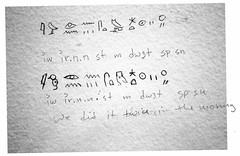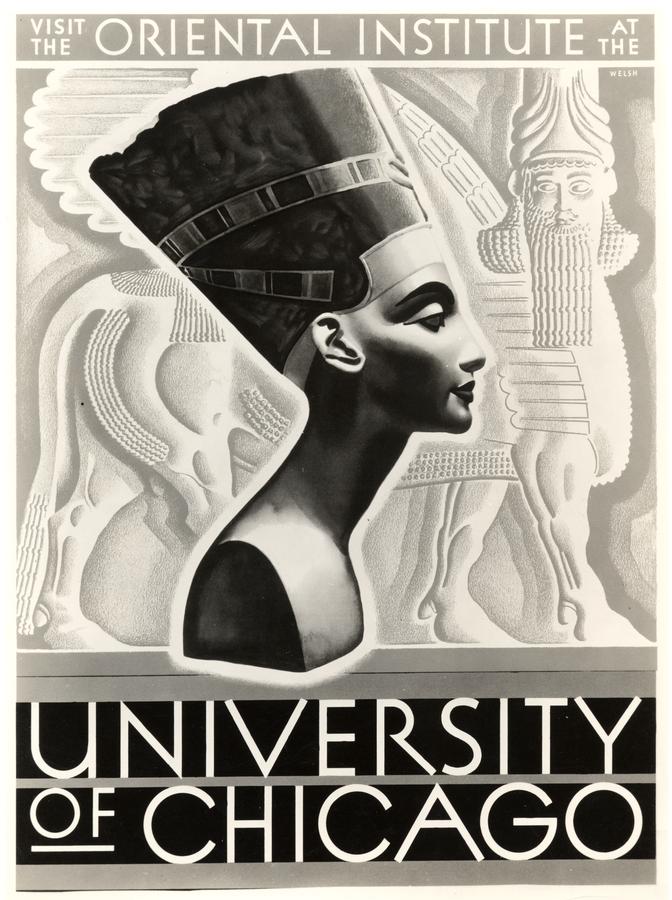One cannot study prehistoric archaeology without encountering the name Robert J. Braidwood. An innovator of archaeological method and inquiry, Braidwood pioneered new ways of investigating the prehistoric past. He found an interest in that unique period of human history that marks a transition from hunting and gathering into food production through agriculture (Redman 1978; Harms 2003; Zeder, et al 2006).
Braidwood began his career in archaeology in the 1930s when he signed on for field work near Baghdad and soon began working with James Henry Breasted, founder of the Oriental Institute of the University of Chicago where Braidwood would finally become Professor Emeritus (Harms 2003). Soon after World War II, Braidwood began to set new standards in archaeological methods for discovering the past in and around the “hilly flanks of the fertile crescent,” region of Mesopotamia and the Levant east of the Zagros mountains where there are slopping hills and fertile plains (Braidwood and Howe 1960; Braidwood et al 1983). It was here that Braidwood and his colleagues established a multidisciplinary approach to investigating the past, employing the use of scientists and researchers from cross-disciplines to examine floral and faunal remains as well as geology and culture history (Braidwood and Howe 1960; Braidwood et al 1983; Watson 2003)...
Friday, February 26, 2010
"Robert J. Braidwood: More Than Just One Man"
A Hot Cup of Joe has a nice little piece on Bob Braidwood:

Thursday, February 25, 2010
News: Milt Rosenberg discusses Ancient Egypt with Gil Stein, Geoff Emberling, Janet Johnson and Emily Teeter from the Oriental Institute
Extension 720 Uncut Podcast 02-19-10

See the chronicle of news about the Oriental Institute.


Extension 720 with Milt Rosenberg
Milt Rosenberg discusses Ancient Egypt with Gil Stein, Geoff Emberling, Janet Johnson and Emily Teeter from the Oriental Institute of the University of Chicago."...they're very very good scholars and very important people..."
See the chronicle of news about the Oriental Institute.
Saturday, February 20, 2010
The Rencontre Assyriologique Internationale at the OI
The Rencontre Assyriologique Internationale has met at the Oriental Institute twice

16th - Chicago, August 20 - 23, 1967, no theme.
Published in Journal of Near Eastern Studies 27, 1968, 161-261. [Available online to licensees / subscribers at JSTOR]
A summary appeared in Orientalia, Nova Series 36, 1967, 435-436 (R. Caplice). Photo Photo 2 Photo 351st - Chicago, July 18 - 22, 2005, "Classifications of Knowledge in the Ancient Near East: Lexicography, Iconography, Stratigraphy"
Published as Proceedings of the 51st Rencontre Assyriologique Internationale, Held at the Oriental Institute of the University of Chicago, July 18–22, 2005 - Studies in Ancient Oriental Civilization 62, Robert D. Biggs, Jennie Myers and Martha T. Roth (eds.), Chicago (The Oriental Institute) 2008. [Available online to everyone]. Photo
Wednesday, February 17, 2010
News: Grandchildren of Oriental Institute’s founder James Henry Breasted visit new Pioneers to the Past exhibition
Grandchildren of Oriental Institute’s founder James Henry Breasted visit new Pioneers to the Past exhibition
University of Chicago News
February 17, 2010


See the chronicle of news about the Oriental Institute.

University of Chicago News
February 17, 2010
James Henry Breasted III paused for a moment before entering a gallery devoted to the life of his famous grandfather, the founder of the Oriental Institute. The grandson stood pondering a bust of his grandfather, also named James Henry Breasted.
“Do you see any family resemblance?” asked Gil Stein, Director of the Oriental Institute. Breasted looked closely, smiled and said, “I did when I used to have a moustache!”
“I grew up knowing I had quite an accomplished grandfather,” Breasted said. “But when I come here, I learn even more.”
Breasted was among a group of family members touring the Oriental Institute’s freshly installed exhibition on James Henry Breasted, “Pioneers to the Past: American Archaeologists in the Middle East, 1919–1920.” Breasted toured the museum and exhibition last week with Stein and Geoff Emberling, Research Associate and Chief Curator of the Oriental Institute Museum.
The younger Breasted studied the photos and artifacts in the cases and then looked at a wall that displayed a large map of the route his grandfather took in 1919 and 1920, while scouting sites in the Middle East for Oriental Institute expeditions. “It was quite an adventure,” Breasted said.
“Before donating my grandfather’s letters to the Oriental Institute, my father had copies of them made for all of us Breasted children. So although I have not read every word, I have read in the letters enough to appreciate my grandfather’s remarkable devotion to his chosen path of being, as my uncle Charles so aptly put it, ‘a pioneer to the past.’”
Breasted never knew his grandfather, as he was born two years after James Henry Breasted died in 1935. But James remembers that even as a child he loved making maps, and after he returned to the state where he was born, he became a map–maker in a land–surveying business in Colorado, where he still lives.
He joined two other Breasted grandchildren, his brother John Breasted, his sister Barbara Breasted Whitesides and also a great–grandson, for hors d’oeuvres and a talk Wednesday evening—under the watchful eye of the institute’s great Assyrian bull— with a group of supporters of the Oriental Institute, known appropriately as the James Henry Breasted Society.

From left, Geoff Emberling, Research Associate and Chief Curator of the Oriental Institute Museum, Gil Stein, Director of the Oriental Institute, and James Henry Breasted III stand near a bust of the latter’s grandfather and Oriental Institute founder James Henry Breasted. Breasted III came to Chicago with two of his siblings to view the Oriental Institute’s newest exhibition about their grandfather’s journey through Egypt and what are now Iraq, Syria, Lebanon, and Israel.

During their visit to the University of Chicago, James Henry Breasted’s grandchildren and great grandson posed for a photo near the steps leading to the Oriental Institute’s library. From left are grandson James Breasted III, granddaughter Barbara Breasted Whitesides, Oriental Institute Director Gil Stein, great-grandson John Larson, Chief Curator of the Oriental Institute Museum Geoff Emberling, and (seated in center) grandson John Breasted.

Members of the Oriental Institute’s James Henry Breasted Society gathered with the O.I. founder’s grandchildren for a refreshments and a talk in the Mesopotamian gallery, where the institute’s Assyrian bull is displayed as part of the Yelda Khorsabad Court installation.
See the chronicle of news about the Oriental Institute.
Tuesday, February 16, 2010
News: "E-mails in Scrolls case may implicate prof"
E-mails in Scrolls case may implicate prof
The Chicago Maroon
By Ilana Kowarski
Published: February 16th, 2010
See the chronicle of news about the Oriental Institute.
The Chicago Maroon
By Ilana Kowarski
Published: February 16th, 2010
Raphael Golb, 49, faces 51 criminal charges of identity theft, criminal impersonation, harassment, and unauthorized use of computers. He is the son of Oriental Institute Professor Norman Golb.
See the chronicle of news about the Oriental Institute.
Wednesday, February 3, 2010
Also Seen: Hieroglyphic sex graffiti
Quinn Dombrowski blames the Oriental Institute for Egyptological sex graffiti in Regenstein Library.


Monday, February 1, 2010
News: New Twist in Dead Sea Scrolls Case
New Twist in Dead Sea Scrolls Case
Inside Higher Ed, Quick Takes,
February 1, 2010.
See the chronicle of news about the Oriental Institute.
Inside Higher Ed, Quick Takes,
February 1, 2010.
In the latest twist of a curious legal case involving allegations of identity theft, cyber-bullying, and two-millennia-old religious artifacts, a well-known University of Chicago professor has been implicated in a complex, Internet-based scheme to smear opponents of his work. Norman Golb, a professor of Jewish history and civilization at Chicago, has been mostly a sideline figure since his son, Raphael, was arrested last March after allegedly creating dozens of Web aliases and using them to harass and discredit scholars who disagree with his father’s theories about the origins of the Dead Sea Scrolls...
See the chronicle of news about the Oriental Institute.
Subscribe to:
Comments (Atom)





 Stumble It!
Stumble It!

